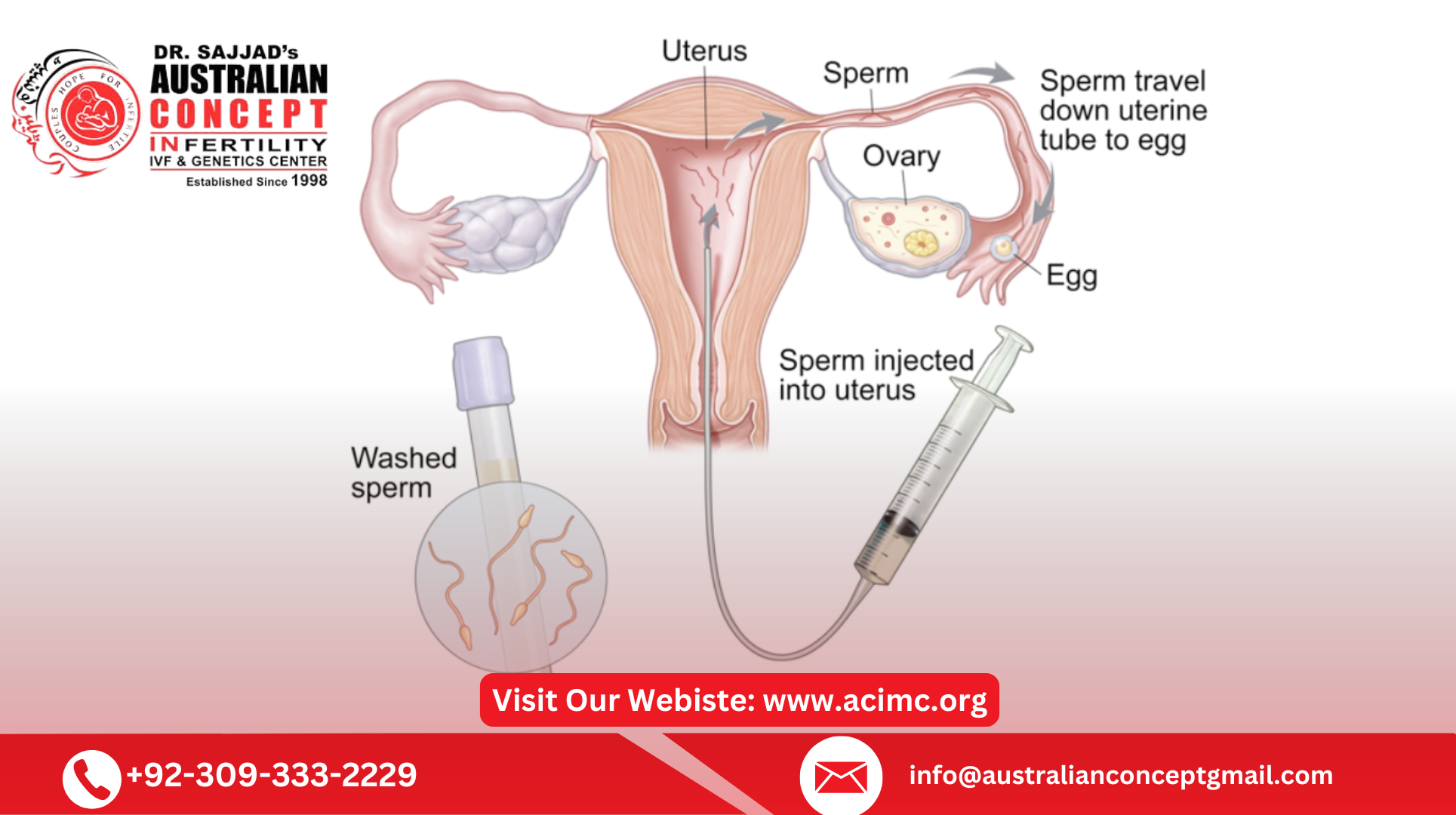Can IUI treatment help all couples to get a Baby

Infertility affects millions of couples worldwide, prompting many to seek medical assistance to achieve pregnancy. One of the most common fertility treatments is Intrauterine Insemination (IUI). It’s less invasive than other methods like IVF and is often the first recommended procedure.
Let’s explore what IUI is, how it works, who it benefits most, and whether it’s the right solution for every couple struggling with infertility.
What Is IUI Treatment?
Intrauterine Insemination (IUI) is a fertility procedure where specially prepared sperm is inserted directly into the woman’s uterus around the time of ovulation. This process increases the number of sperm reaching the fallopian tubes, enhancing the chances of fertilization.
How IUI Works:
-
Ovulation Monitoring – The woman may take medications to stimulate ovulation.
-
Sperm Collection & Washing – Sperm is collected and processed to concentrate the healthiest, most motile sperm.
-
Insemination Procedure – The sperm is placed into the uterus using a thin catheter.
-
Follow-up – Pregnancy is confirmed via a blood test after two weeks.
The entire procedure is simple, painless, and performed in a clinic without the need for anesthesia.
Who Is IUI Treatment Most Suitable For?
IUI Treatment can be highly effective for certain types of infertility. It is commonly recommended in the following cases:
1. Unexplained Infertility
When all fertility tests come back normal but pregnancy still doesn’t occur, IUI may be a good first option.
2. Mild Male Factor Infertility
Men with slightly low sperm count or motility may benefit from IUI since sperm washing helps select the best sperm.
3. Cervical Mucus Problems
Sometimes, cervical mucus prevents sperm from reaching the egg. Bypassing the cervix via IUI solves this issue.
4. Ovulation Problems
Women who don’t ovulate regularly can take fertility medications alongside IUI for better results.
Who May Not Benefit from IUI Treatment?
While IUI has helped many couples achieve pregnancy, it’s not ideal for everyone. In fact, certain medical conditions may make IUI less effective or unsuitable, such as:
1. Severe Male Factor Infertility
When sperm count, motility, or morphology is too low, IUI is unlikely to be successful. IVF or ICSI may be required.
2. Blocked Fallopian Tubes
IUI requires at least one functioning fallopian tube. Blockages prevent sperm from reaching the egg, making IVF a better choice.
3. Advanced Maternal Age
Women over 37 often have lower ovarian reserves. IVF is typically more effective in such cases.
4. Endometriosis (Severe)
While mild endometriosis may respond to IUI, moderate to severe cases usually need IVF for better outcomes.
5. Multiple Failed IUI Cycles
If a couple has tried IUI multiple times without success, moving on to advanced treatments like IVF or ICSI is advised.
IUI Success Rates
The success of IUI depends on various factors, including age, fertility diagnosis, and the use of fertility medications.
-
Women under 35: 15%–20% success per cycle
-
Women aged 35–40: 10%–12% success per cycle
-
Women over 40: 5%–7% success per cycle
Most fertility experts recommend trying IUI for 3–6 cycles before considering other treatments.
Advantages of IUI
-
Less invasive compared to IVF or ICSI
-
Lower cost, making it more accessible
-
Minimal discomfort during the procedure
-
No need for anesthesia or surgery
-
Simple and quick process, often done in under 10 minutes
When Should Couples Consider Alternatives?
If IUI hasn’t worked after several cycles or if medical conditions suggest low success rates, it may be time to consider:
-
IVF (In Vitro Fertilization)
-
ICSI (Intracytoplasmic Sperm Injection)
-
Surgical sperm retrieval for azoospermia
-
Genetic testing for underlying causes of infertility
Infertility specialists evaluate both partners before recommending a treatment plan that offers the highest chance of success.
Final Thoughts
While IUI is a valuable and effective fertility treatment for many, it is not a universal solution. Its success largely depends on the cause of infertility, age, and other health factors.
Couples should consult a qualified fertility specialist to determine if IUI is suitable or if another advanced treatment is more appropriate. Personalized care and accurate diagnosis are key to selecting the right path to parenthood.







